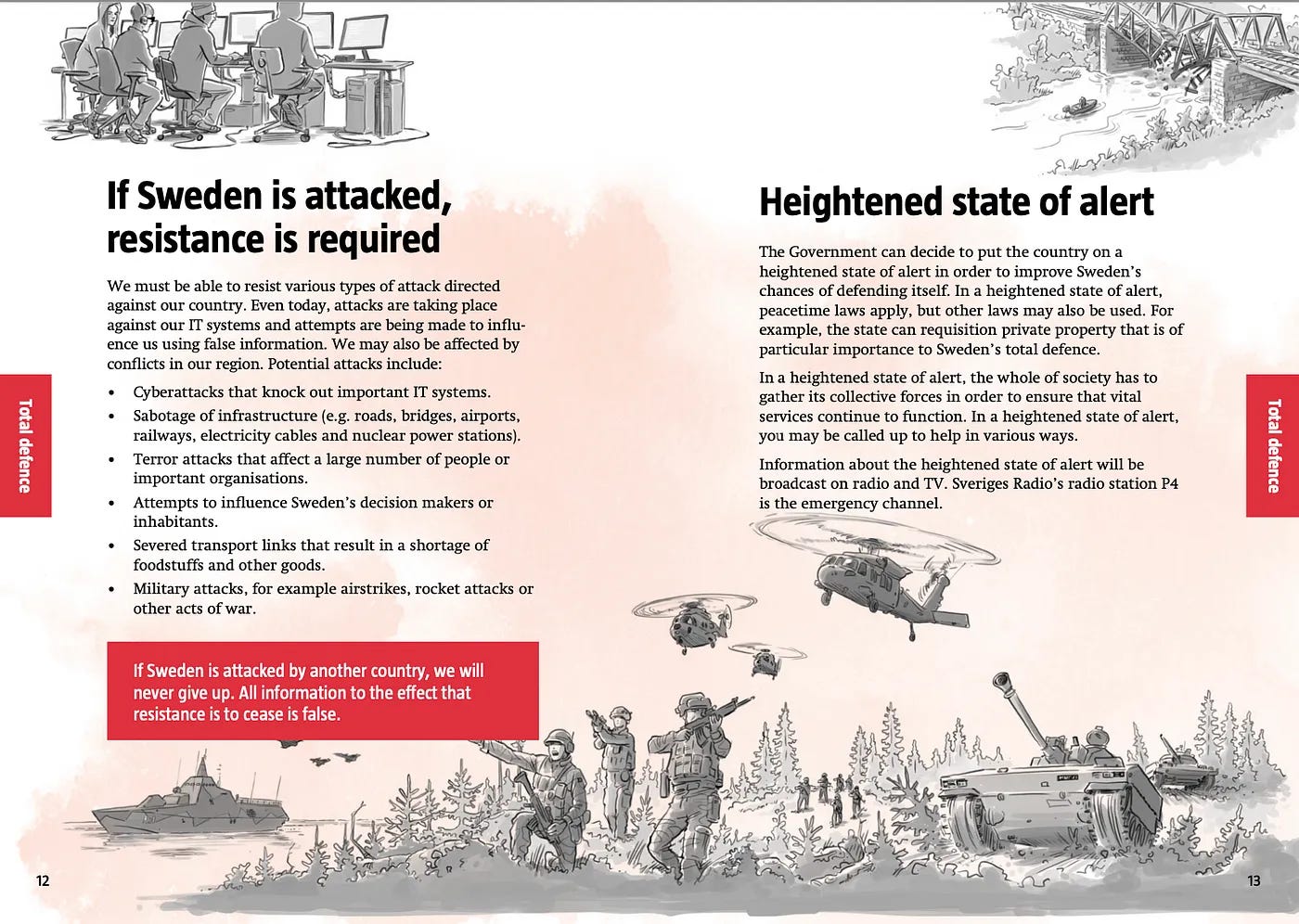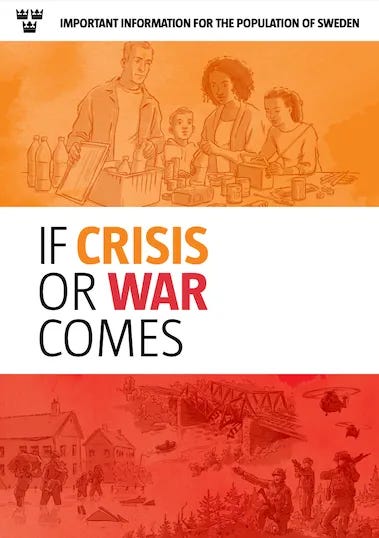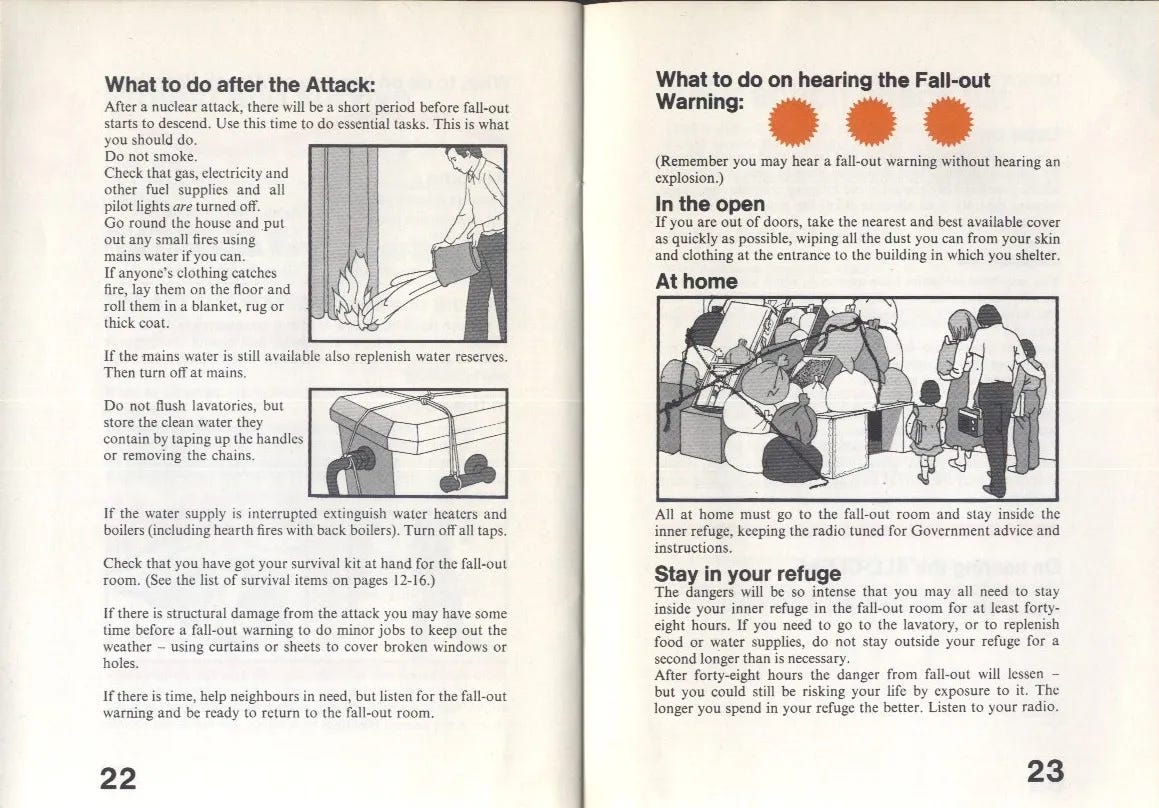If Crisis or War Comes
This piece first appeared on Dr Tobias Stone’s Medium account in May 2024. We are reposting it here.
We launched Resilience Conference two weeks ago. Since then, we’ve had dozens of meetings with potential speakers, sponsors, and supporters to shape the contents of the conference. We’re running Resilience because we feel it is necessary. During the last week one insight from a speaker underlined that point.
We were told about the Swedish government’s recent distribution of a pamphlet to every citizen called “If Crisis or War Comes.”
The pamphlet opens with:
“everyone who lives in Sweden shares a collective responsibility for our country’s security and safety. When we are under threat, our willingness to help each other is one of our most important assets. If you are prepared, you are contributing to improving the ability of the country as a whole to cope with a major strain.”
The Swedish Civil Contingencies Agency explains on their website that ‘the last time a brochure was sent out was in 1961, during the Cold War. It was called “If War Comes”.’ The current brochure ‘is to help us become better prepared for everything from serious accidents, extreme weather and IT attacks, to military conflicts.’
We had an interesting discussion about why such a brochure has not been issued in the UK, and what the reaction would be if a similar one was released. The last time the British government released such a pamphlet was in 1980. Protect and Survive showed citizens what to do in event of a nuclear attack, though a lot of the advice focussed on building a shelter from an old door, or a kitchen table.
The modern Swedish version is more useful, and an impressive document for its clarity and focus. The brochure is focussed more broadly on crises such as climate related incidents, terrorism, and disinformation, as well as acts of war.
‘If Crisis or War Comes’ is an appropriate document for the current era. It would be interesting to see this rolled out across NATO countries as it also helps re-frame the context in which we are all living and operating now.
It underlines what we are trying to address with Resilience Conference. The pace of innovation in defence and security has rapidly accelerated. The scale of what is needed, and the ability to produce it quickly and cleverly is beyond what any government can do alone, and the war in Ukraine has shown how necessity has drawn in people from the tech sector — engineers, entrepreneurs, and investors — to work closely with the government and the military, and at speed. This is part of the ‘total defence’ refered to by the Swedish government.
‘If Crisis or War Comes’ is a document about Resilience. It shows the interaction between conflict, natural disasters, and information. It argues clearly that the whole of society has a role to play in preparing for these crises, and describes a strategy for resilience in the face of threats. It is a fascinating document, and an exceptional one.




